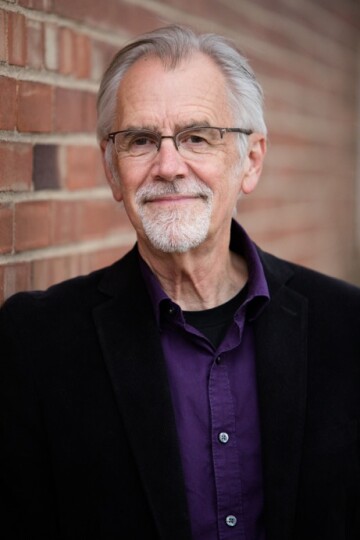My father believed if a man had a boat,
given the length of the river, and the brevity
of life, and given the milk route he rose
to run each morning with the moon
still out as he slipped from the trailer
over the blue gravel, and lifted all day
the cases of sweetmilk and buttermilk,
and stocked the grocery coolers,
and charmed the cashiers, and given
the memory of his own father drunk
and dripping from the river, the car
down deep, and his mother sharpening
on the piano her powers of forgiveness,
the war barely over, and given the wide
green of the Ohio with its coal barges and tugs,
and the weight of the current and the gulls
like little gods, a man with a boat might ride
things out, glide above the tangle and muck,
feel a better brand of wind, and smell the rich rot
of silt along the banks, and given the light
burnished surface, all silver and living, and day
bright as bracelets, if he could just buy a boat
all waters were his, and where they led--
some glittering sandbar with women in Catalinas
like Esther Williams, and no more cold half-
dollar's worth of moon to wake up under,
nor sour rubbery smell of milk and refrigerant,
if a man had a boat, there'd be time and light
and wind, and one hand over the side just
skimming up spray.
Max Garland is the author of The Word We Used for It, (from which this poems is taken) winner of the 2017-18 Brittingham Prize and available here, used by permission of the author. Previous books include The Postal Confessions and Originally from Kentucky, he is Professor Emeritus at UW-Eau Claire, served as writer in residence for the city of Eau Claire, and is the former Poet Laureate of Wisconsin. For more by and about Max look here.























